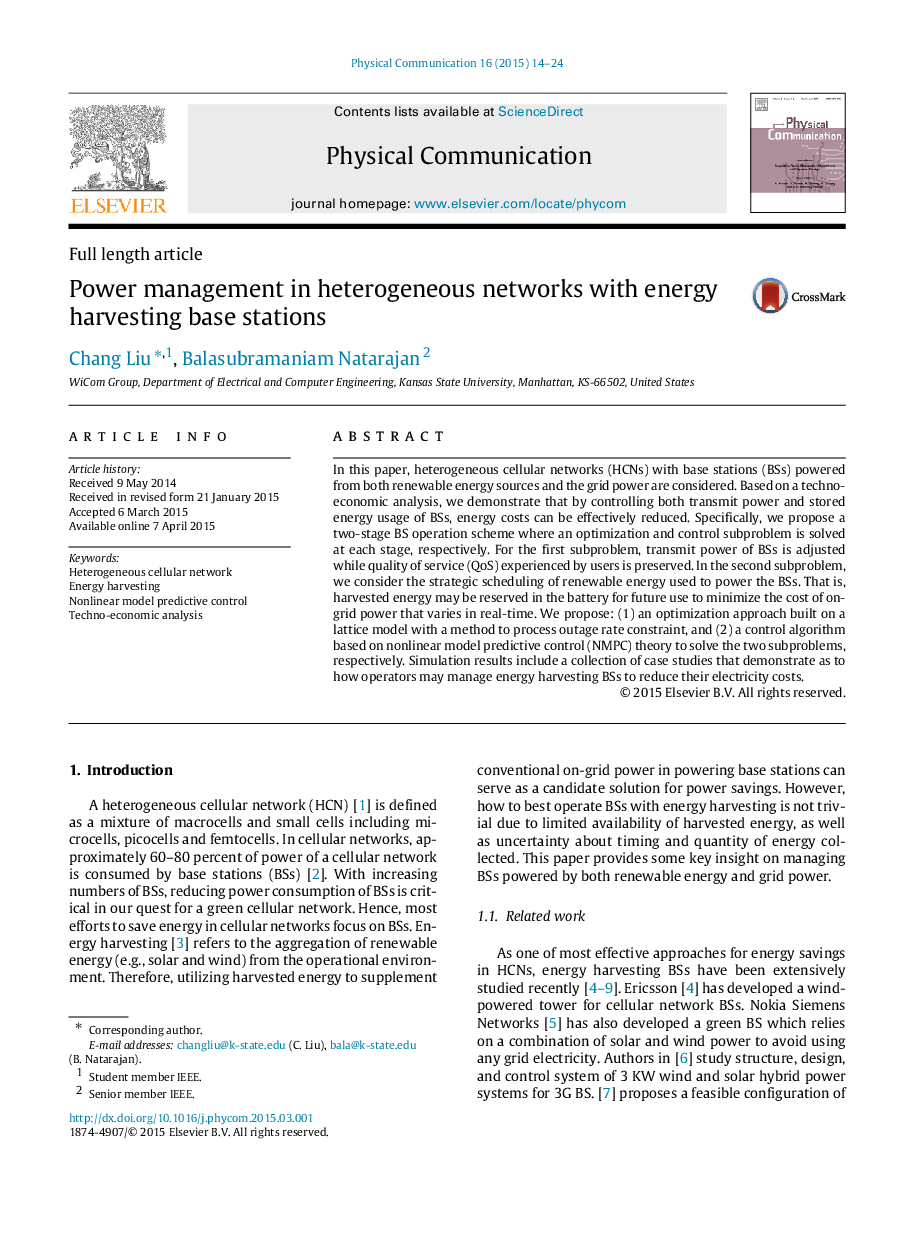| Article ID | Journal | Published Year | Pages | File Type |
|---|---|---|---|---|
| 465070 | Physical Communication | 2015 | 11 Pages |
In this paper, heterogeneous cellular networks (HCNs) with base stations (BSs) powered from both renewable energy sources and the grid power are considered. Based on a techno-economic analysis, we demonstrate that by controlling both transmit power and stored energy usage of BSs, energy costs can be effectively reduced. Specifically, we propose a two-stage BS operation scheme where an optimization and control subproblem is solved at each stage, respectively. For the first subproblem, transmit power of BSs is adjusted while quality of service (QoS) experienced by users is preserved. In the second subproblem, we consider the strategic scheduling of renewable energy used to power the BSs. That is, harvested energy may be reserved in the battery for future use to minimize the cost of on-grid power that varies in real-time. We propose: (1) an optimization approach built on a lattice model with a method to process outage rate constraint, and (2) a control algorithm based on nonlinear model predictive control (NMPC) theory to solve the two subproblems, respectively. Simulation results include a collection of case studies that demonstrate as to how operators may manage energy harvesting BSs to reduce their electricity costs.
